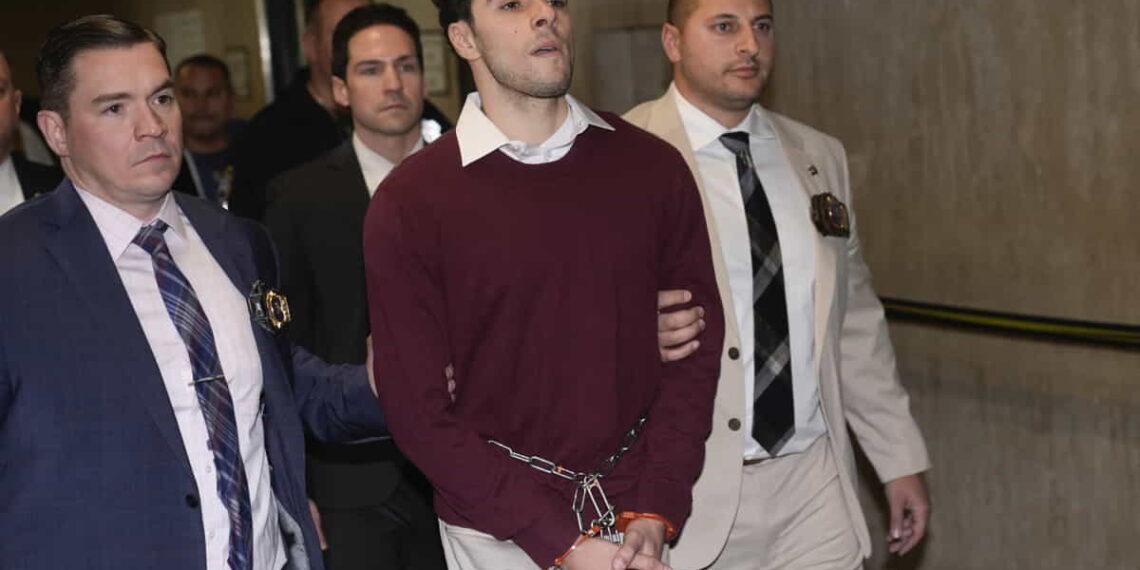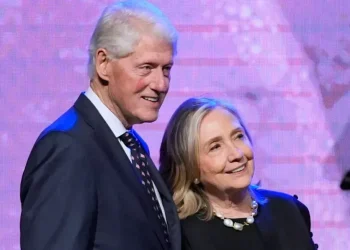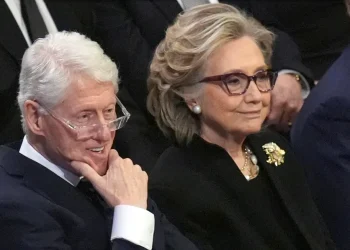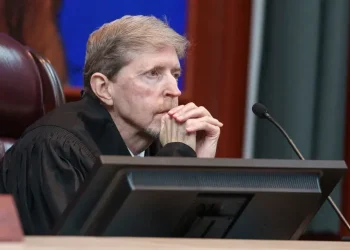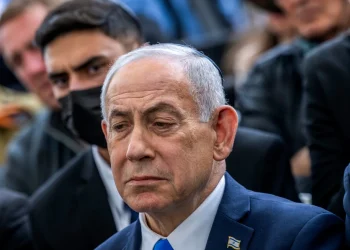Luigi Mangione Pleads Not Guilty in UnitedHealthcare CEO’s Killing
Luigi Mangione, accused of fatally shooting Brian Thompson, the CEO of UnitedHealthcare, pleaded not guilty on Monday to state murder and terrorism charges. The case has sparked debates about fair trials, jurisdictional conflicts, and rising frustrations with the U.S. healthcare system.
Courtroom Drama: Murder and Terror Charges
Mangione, 26, appeared shackled in a Manhattan courtroom, where he leaned into the microphone to formally enter his plea. Prosecutors charged him with multiple counts of murder, including one as an act of terrorism, citing the deliberate and shocking nature of the crime.
While state charges carry a maximum sentence of life without parole, federal prosecutors have also filed separate charges that could lead to the death penalty. The dual prosecutions have led Mangione’s defense to argue he is being unfairly targeted.
Defense Raises Concerns About a Fair Trial
Karen Friedman Agnifilo, Mangione’s attorney, criticized both the federal and state proceedings, describing Mangione as a “human ping-pong ball” caught between warring jurisdictions. She also expressed concerns that public comments from New York Mayor Eric Adams and other officials were prejudicing the case.
“He was turned into a spectacle during his extradition,” Agnifilo said, referencing a heavily staged police escort when Mangione was flown to Manhattan. She called Adams’ statement — about looking Mangione “in the eye” for committing a terroristic act — a blatant attempt to influence public perception.
In response, a spokesperson for Adams defended the mayor’s stance, emphasizing the importance of standing against violence and terrorism in New York City.
The Crime That Shocked New York
Authorities allege Mangione shot Thompson on Dec. 4 as the CEO was walking to an investor conference in Midtown Manhattan. After a five-day manhunt, Mangione was arrested at a McDonald’s in Pennsylvania. Police recovered a gun matching the weapon used in the shooting, a fake ID, and a notebook containing anti-healthcare industry sentiments.
Federal prosecutors argue that the attack was a “frightening, well-planned, targeted murder” intended to create terror. Manhattan District Attorney Alvin Bragg echoed this sentiment, describing the crime as both calculated and symbolic.
Public Reaction: Frustration with Healthcare and Corporate Power
The killing has tapped into public outrage over the U.S. healthcare system. Some view Mangione as a symbol of growing resentment toward insurance companies, particularly regarding denied claims and exorbitant medical costs.
At a demonstration outside the courthouse, dozens of supporters chanted “Free Luigi” as a trumpet blared. Natalie Monarrez, a Staten Island resident who lost her mother and life savings due to denied insurance claims, said she understood the frustrations that fueled the tragedy.
“Enough is enough,” Monarrez said. “As extreme as it was, this act forced a conversation we’ve ignored for too long.”
The Victim: A Family Man and Corporate Leader
Brian Thompson, a married father of two teenagers, had dedicated over 20 years to UnitedHealth Group and became CEO of its insurance division in 2021. His death has left both his family and the corporate world shaken, with some executives reporting a rise in threats since the attack.
The Defendant’s Background: A Troubled Path
Mangione, an Ivy League graduate from a prominent Maryland family, had reportedly distanced himself from loved ones in recent months. His online posts reveal struggles with chronic back pain and discontent with the healthcare industry, although he was never a UnitedHealthcare client.
Legal Proceedings and the Road Ahead
Judge Gregory Carro, presiding over the state trial, assured the court that Mangione would receive a fair trial despite external pressures. However, the dual prosecutions — one state, one federal — complicate the path forward, as each pursues different legal theories.
Mangione is currently being held at a Brooklyn federal jail alongside other high-profile defendants. His case is expected to remain in the public spotlight as it proceeds, with debates about healthcare, corporate accountability, and terrorism laws continuing to swirl.
This article was rewritten by JournosNews.com based on verified reporting from trusted sources. The content has been independently reviewed, fact-checked, and edited for accuracy, neutrality, tone, and global readability in accordance with Google News and AdSense standards.
All opinions, quotes, or statements from contributors, experts, or sourced organizations do not necessarily reflect the views of JournosNews.com. JournosNews.com maintains full editorial independence from any external funders, sponsors, or organizations.
Stay informed with JournosNews.com — your trusted source for verified global reporting and in-depth analysis. Follow us on Google News, BlueSky, and X for real-time updates.
